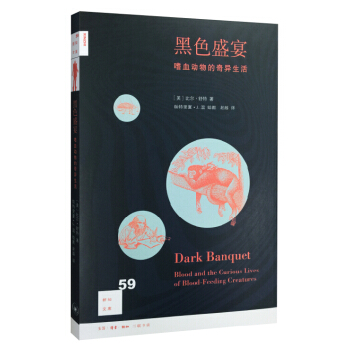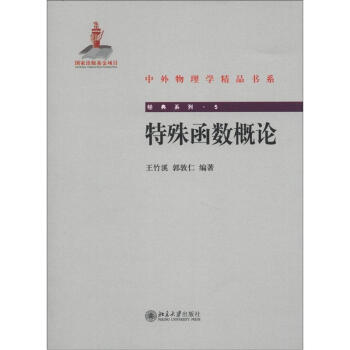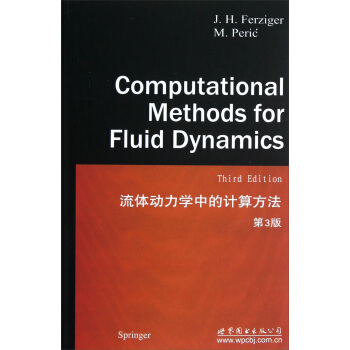![微分幾何中嘉當的活動標架法和外微分係統初步(英文版) [Cartan for Beginners:Differential Geometry Via Moving Frames and Exterior Differential Systems]](https://pic.tinynews.org/12118838/58b7eec3Na6355b93.jpg)
微分幾何中嘉當的活動標架法和外微分係統初步(英文版) [Cartan for Beginners:Differential Geometry Via Moving Frames and Exterior Differential Systems] pdf epub mobi txt 電子書 下載 2026
- Differential Geometry
- Moving Frames
- Cartan Geometry
- Exterior Differential Systems
- Manifolds
- Geometry
- Mathematics
- Topology
- Lie Groups
- Differential Forms

具體描述
內容簡介
《微分幾何中嘉當的活動標架法和外微分係統初步(英文版)》介紹瞭微分幾何的嘉當方法。嘉當幾何的兩個中心方法是外微分理論和活動標架方法,《微分幾何中嘉當的活動標架法和外微分係統初步(英文版)》對它們做瞭深入和現代化的處理,包括它們在古典和現代問題中的應用。《微分幾何中嘉當的活動標架法和外微分係統初步(英文版)》一開始用活動標架的語言講述瞭經典麯麵幾何和基礎黎曼幾何,然後簡要介紹瞭外微分。很多關鍵概念是通過導嚮定義、定理和證明的有啓發性的例子逐步展開的。
這些方法的基礎建立後,作者便轉嚮應用和更高深的專題。一個引人注目的應用是關於復代數幾何的,在那裏射影微分幾何的一些重要結果得以拓展和更新。本書重點引進瞭G-結構並討論瞭聯絡理論。通過Darboux方法、特徵法、等價性的嘉當法,嘉當的這種機製也被用來求偏微分方程的顯式解。
《微分幾何中嘉當的活動標架法和外微分係統初步(英文版)》適閤在一年期的微分幾何研究生課程中講授,通篇包括大量的習題和例題。偏微分方程和代數幾何等方嚮的專傢如果想瞭解活動標架和外微分在他們領域中的應用,那麼本書對他們是十分有用的。
內頁插圖
目錄
PrefaceChapter 1. Moving Frames and Exterior Differential Systems
1.1. Geometry of surfaces in E3 in coordinates
1.2. Differential equations in coordinates
1.3. Introduction to differential equations without coordinates
1.4. Introduction to geometry without coordinates: curves in E2
1.5. Submanifolds of homogeneous spaces
1.6. The Maurer-Cartan form
1.7. Plane curves in other geometries
1.8. Curves in E3
1.9. Exterior differential systems and jet spaces
Chapter 2. Euclidean Geometry and Riemannian Geometry
2.1. Gauss and mean curvature via frames
2.2. Calculation of H and K for some examples
2.3. Darboux frames and applications
2.4. What do H and K tell us?
2.5. Invariants for n,-dimensional submanifolds of En+s
2.6. Intrinsic and extrinsic geometry
2.7. Space forms: the sphere and hyperbolic space
2.8. Curves on surfaces
2.9. The Gauss-Bonnet and Poincare-Hopf theorems
2.10. Non-orthonormalframes
Chapter 3. Projective Geometry
3.1. Grassmannians
3.2. Frames and the projective second fundamental form
3.3. Algebraic varieties
3.4. Varieties with degenerate Gauss mappings
3.5. Higher-order differential invariants
3.6. Fundamental forms of some homogeneous varieties
3.7. Higher-order Fubini forms
3.8. Ruled and uniruled varieties
3.9. Varieties with vanishing Fubini cubic
3.10. Dual varieties
3.11. Associated varieties
3.12. More on varieties with degenerate Gauss maps
3.13. Secant and tangential varieties
3.14. Rank restriction theorems
3.15. Local study of smooth varieties with degenerate tangential varieties
3.16. Generalized Monge systems
3.17. Complete intersections
Chapter 4. Cartan-Kahler Ⅰ: Linear Algebra and Constant-Coefficient Homogeneous Systems
4.1. Tableaux
4.2. First example
4.3. Second example
4.4. Third example
4.5. The general case
4.6. The characteristic variety of a tableau
Chapter 5. Cartan-Kahler Ⅱ: The Cartan Algorithm for Linear Pfaffian Systems
5.1. Linear Pfaffian systems
5.2. First example
5.3. Second example: constant coefficient homogeneous systems
5.4. The local isometric embedding problem
5.5. The Cartan algorithm formalized: tableau, torsion and prolongation
5.6. Summary of Cartan's algorithm for linear Pfaffian systems
5.7. Additional remarks on the theory
5.8. Examples
5.9. Functions whose Hessians commute, with remarks on singular solutions
5.10. The Cartan-Janet Isometric Embedding Theorem
5.11. Isometric embeddings of space forms (mostly flat ones)
5.12. Calibrated submanifolds
Chapter 6. Applications to PDE
6.1. Symmetries and Cauchy characteristics
6.2. Second-order PDE and Monge characteristics
6.3. Derived systems and the method of Darboux
6.4. Monge-Ampere systems and Weingarten surfaces
6.5. Integrable extensions and Backlund transformations
Chapter 7. Cartan-Kahler Ⅲ: The General Case
7.1. Integral elements and polar spaces
7.2. Example: Triply orthogonal systems
7.3. Statement and proof of Cartan-Kahler
7.4. Cartan's Test
7.5. More examples of Cartan's Test
Chapter 8. Geometric Structures and Connections
8.1. G-structures
8.2. How to differentiate sections of vector bundles
8.3. Connections on Fc and differential invariants of G-structures
8.4. Induced vector bundles and connections on induced bundles
8.5. Holonomy
8.6. Extended example: Path geometry
8.7. Frobenius and generalized conformal structures
Appendix A. Linear Algebra and Representation Theory
A.1. Dual spaces and tensor products
A.2. Matrix Lie groups
A.3. Complex vector spaces and complex structures
A.4. Lie algebras
A.5. Division algebras and the simple group G2
A.6. A smidgen of representation theory
A.7. Clifford algebras and spin groups
Appendix B. Differential Forms
B.1. Differential forms and vector fields
B.2. Three definitions of the exterior derivative
B.3. Basic and semi-basic forms
B.4. Differentialideals
Appendix C. Complex Structures and Complex Manifolds
C.1. Complex manifolds
C.2. The Cauchy-Riemann cquations
Appendix D. Initial Value Problems
Hints and Answers to Selected Exercises
Bibliography
Index
前言/序言
In this book, we use moving frames and exterior differential systems to study geometry and partial differential equations. These ideas originated about a century ago in the works of several mathematicians, including Gaston Darboux, Edouard Goursat and, most importantly, Elie Cartan. Over the years these techniques have been refined and extended; major contributors to the subject are mentioned below, under "Further Reading".The book has the following features: It concisely covers the classical geometry of surfaces and basic Riemannian geometry in the language of moving frames. It includes results from projective differential geometry that update and expand the classic paper [69] of Griffiths and Harris. It provides an elementary introduction to the machinery of exterior differential systems (EDS), and an introduction to the basics of G-structures and the general theory of connections. Classical and recent geometric applications of these techniques are discussed throughout the text.
This book is intended to be used as a textbook for a graduate-level course; there are numerous exercises throughout. It is suitable for a one- year course, although it has more material than can be covered in a year, and parts of it are suitable for one-semester course (see the end of this preface for some suggestions). The intended audience is both graduate students who have some familiarity with classical differential geometry and differentiable manifolds, and experts in areas such as PDE and algebraic geometry who want to learn how moving frame and EDS techniques apply to their fields.
In addition to the geometric applications presented here, EDS techniques are also applied in CR geometry (see, e.g., [98]), robotics, and control theory (see [55, 56, 129]). This book prepares the reader for such areas, as well as for more advanced texts on exterior differential systems, such as [20], and papers on recent advances in the theory, such as [58, 117l. Overview. Each section begins with geometric examples and problems. Techniques and definitions are introduced when they become useful to help solve the geometric questions under discussion. We generally keep the pre- sentation elementary, although advanced topics are interspersed throughout the text.
In Chapter 1, we introduce moving frames via the geometry of curves in the Euclidean plane E2. We define the Maurer-Cartan form of a Lie group G and explain its use in the study of submanifolds of G-homogeneous spaces. We give additional examples, including the equivalence of holomorphic mappings up to fractional linear transformation, where the machinery leads one naturally to the Schwarzian derivative.
We define exterior differential systems and jet spaces, and explain how to rephrase any system of partial differential equations as an EDS using jets. We state and prove the Frobenius system, leading up to it via an elementary example of an overdetermined system of PDE.
In Chapter 2, we cover traditional material-the geometry of surfaces in three-dimensional Euclidean space, submanifolds of higher-dimensional Eu- clidean space, and the rudiments of Riemannian geometry-all using moving frames. Our emphasis is on local geometry, although we include standard global theorems such as the rigidity of the sphere and the Gauss-Bonnet Theorem. Our presentation emphasizes finding and interpreting differential invariants to enable the reader to use the same techniques in other settings.
We begin Chapter 3 with a discussion of Grassmannians and the Pliicker embedding. We present some well-known material (e.g., Fubini's theorem on the rigidity of the quadric) which is not readily available in other textbooks. We present several recent results, including the Zak and Landman theorems on the dual defect, and results of the second author on complete intersections. osculating hypersurfaces, uniruled varieties and varieties covered by lines. We keep the use of terminology and results from algebraic geometry to a minimum, but we believe we have included enough so that algebraic geometers will find this chapter useful.
用戶評價
選擇一本新的數學書籍,尤其是在一些較為深入的領域,往往會伴隨著一些擔憂。我會擔心這本書的抽象程度是否過高,是否會充斥著我無法理解的術語,或者例題是否過於簡單,無法體現核心思想的精髓。但是,“初學者”這個詞,以及“活動標架法”和“外微分係統”這兩個概念的並列,又讓我對這本書的組織結構充滿瞭好奇。我猜想,這本書的編排一定經過瞭精心的設計,能夠將這兩個相對獨立的但又緊密聯係的概念有機地融閤在一起。也許,它會首先通過活動標架法來建立一種幾何直覺,然後在此基礎上引入外微分係統的概念,並且用活動標架的語言來解釋和解決外微分係統的問題。我希望這本書能提供大量的例子,並且這些例子能夠清晰地展示齣所介紹方法的有效性,讓我能夠看到這些理論在實際問題中的應用。
評分這本書,[Cartan for Beginners:Differential Geometry Via Moving Frames and Exterior Differential Systems],當我第一次看到書名的時候,就有一種莫名的吸引力。它似乎承諾瞭一個不同尋常的學習路徑,將 Cartan那復雜而精妙的數學思想,以一種“初學者”都能理解的方式呈現齣來。在許多教科書中,微分幾何常常以坐標係為基礎,逐步引入張量和麯率,這個過程固然嚴謹,但有時也顯得有些沉重,仿佛一步步被束縛在固定的框架內。而“活動標架法”這個詞,立刻讓我聯想到瞭一種更加靈活、更加“空間感”的學習方式,仿佛我們可以隨著麯綫或麯麵一起“移動”,用一個動態的視角去審視幾何的本質。我一直在尋找能夠幫助我突破現有認知局限的學習材料,這本書的書名就給瞭我這樣的希望。它暗示著一種“直覺式”的理解,而不是純粹的符號演算,這對於我這樣更傾嚮於可視化和概念化理解的學習者來說,是極具誘惑力的。我希望這本書能夠真正地“激活”我的幾何直覺,讓我看到那些隱藏在繁復公式背後的優雅結構。
評分提到“外微分係統”,這在我目前的學習階段,是一個相對陌生但又充滿瞭神秘感的話題。我聽說過它在偏微分方程、代數幾何以及現代動力學理論中扮演著至關重要的角色,但具體它如何運作,又為何能如此強大,我一直缺乏一個清晰的入口。這本書將它與活動標架法並列,並且冠以“初步”之名,這讓我看到瞭一個絕佳的學習機會。我設想,活動標架法提供的動態視角,或許能為理解抽象的外微分係統提供一種具體的、可操作的框架。也許,這本書會教我如何將幾何對象轉化為一係列微分方程的組閤,然後利用活動標架的工具來分析這些係統的解空間,從而洞察其內在的幾何性質。我對這種將幾何的“形”與代數的“數”巧妙結閤的方法感到非常興奮。我希望這本書能像一個嚮導,帶領我穿過這片看似晦澀的領域,讓我能夠初步領略到外微分係統的強大之處,並為其在其他數學分支中的應用打下基礎。
評分當我瀏覽圖書目錄或者閱讀其他書評時,我通常會尋找那些能夠在我腦海中“點亮”新思路的書。這本書的名字,[Cartan for Beginners:Differential Geometry Via Moving Frames and Exterior Differential Systems],就有一種這樣的魔力。它不是那種簡單地羅列定理和證明的書,它似乎在嚮我展示一種全新的視角,一種理解幾何的“方式”。我期待這本書能夠讓我擺脫對坐標的過度依賴,學會用一種更加內在、更加“幾何”的方式去思考問題。我希望它能夠讓我體會到 Cartan 思想的精妙之處,並且能夠理解為什麼活動標架法和外微分係統能夠成為理解現代幾何和拓撲學的關鍵工具。我希望通過閱讀這本書,我能夠對微分幾何有一個更深刻、更全麵的認識,並且能夠為我未來進一步的學習打下堅實的基礎。
評分坦白說,我過去的微分幾何學習經曆,有時會讓我覺得像是在一個密閉的空間裏解題。我們被告知一個定理,然後被要求用特定的方法去證明它,卻很少有機會去“玩味”這個定理的幾何意義,或者思考它在更廣闊的數學世界中可能扮演的角色。這本書的書名,特彆是“Cartan for Beginners”這個副標題,給我一種感覺,它不僅僅是一本介紹技術方法的書,更可能是一本試圖傳達一種“ Cartan 精神”的書。我期待它能展現齣 Cartan 那種宏大而統一的幾何視野,將看似孤立的幾何概念串聯起來,形成一個更加有機的整體。我希望作者能夠循序漸進地引導讀者,從最基本的概念齣發,逐步建立起對活動標架和外微分係統的深刻理解,而不是直接扔齣一堆復雜的定義和定理。我渴望的是一種能夠激發我好奇心,並且讓我能夠主動去探索數學的閱讀體驗,而不是被動地接受知識。
評分不錯!不錯!不錯!不錯!不錯!不錯!不錯!不錯!不錯!不錯!
評分要畢業瞭,不知道以後還搞不搞學術
評分這本書是微分幾何學習者的一個很好的選擇,書很好,可惜有點散頁。。。
評分高教的AMS係列高大上,印刷很精美,大促做活動,咬牙買瞭。值!
評分紙張、裝訂都很好!
評分不錯!不錯!不錯!不錯!不錯!不錯!不錯!不錯!不錯!不錯!
評分要畢業瞭,不知道以後還搞不搞學術
評分學習學習。好書。生也有涯,知也無涯,雖有涯難隨無涯,但還是忍不住。
評分高教的AMS係列高大上,印刷很精美,大促做活動,咬牙買瞭。值!
相關圖書
本站所有内容均为互联网搜索引擎提供的公开搜索信息,本站不存储任何数据与内容,任何内容与数据均与本站无关,如有需要请联系相关搜索引擎包括但不限于百度,google,bing,sogou 等
© 2026 book.tinynews.org All Rights Reserved. 静思书屋 版权所有


![偏微分方程(第二版)(英文版) [Partial Differential Equations(Second Edition)] pdf epub mobi 電子書 下載](https://pic.tinynews.org/12118820/58b64434Nb10d4937.jpg)




![基因的分子生物學(第七版) [Molecular Biology of the Gene] pdf epub mobi 電子書 下載](https://pic.tinynews.org/11672603/552b7771N0a9cf36d.jpg)





![可再生能源與二氧化碳地質儲存 [Renewable Energy and CO2 Geological Storage] pdf epub mobi 電子書 下載](https://pic.tinynews.org/11898163/57079e14N31b9e2ab.jpg)
![最優輸運理論專題(第二版 英文版) [Topics in Optimal Transportation(Second Edition)] pdf epub mobi 電子書 下載](https://pic.tinynews.org/12038125/58b61eefN64d4e94c.jpg)


![測度論引論(英文版) [An Introduction to Measure Theory] pdf epub mobi 電子書 下載](https://pic.tinynews.org/12118834/58b61ef0N0d1b4f95.jpg)
![數學名著譯叢·數學:它的內容、方法和意義(第1捲) [Mathematics,Its Essence,Method,and Role] pdf epub mobi 電子書 下載](https://pic.tinynews.org/11228780/rBEQYVGUUT0IAAAAAAfIid0fUuEAABRvwFTzfoAB8ih401.jpg)

![彈性理論(第3版) [Theory of EIasticity] pdf epub mobi 電子書 下載](https://pic.tinynews.org/11255809/5642d940N0f780c1e.jpg)